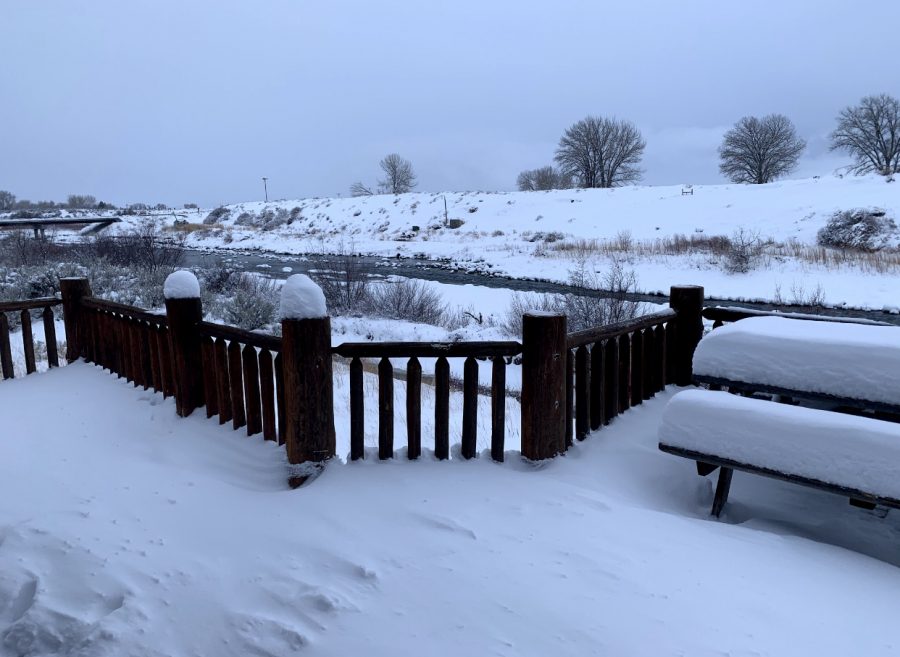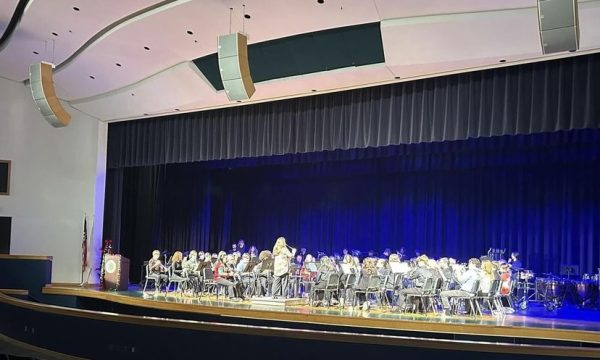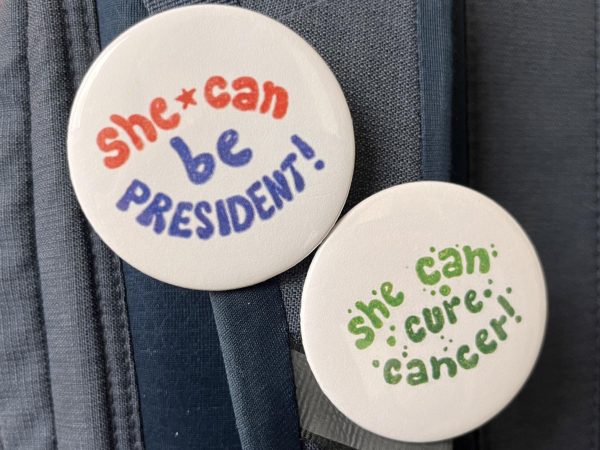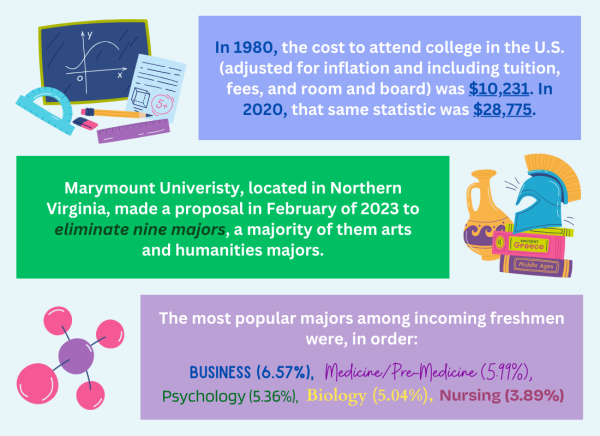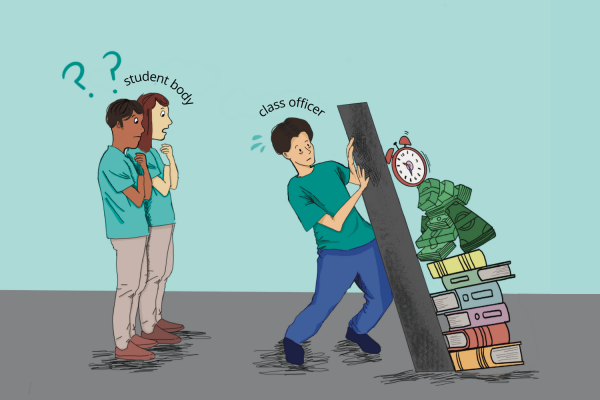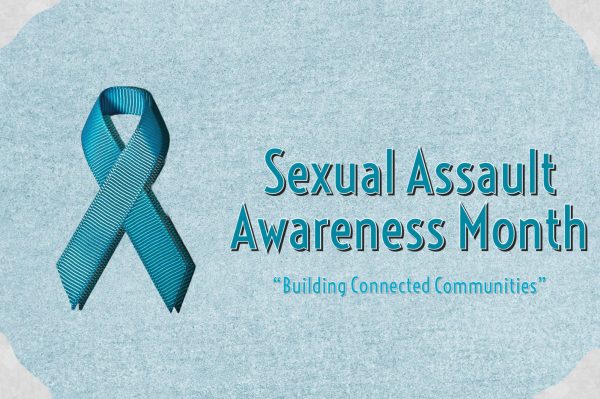For Crying Out Cloud
Is strange weather attributed to climate change?
Photo Courtesy of Robin Phillips
A snow-covered porch in Clark exhibits just how much snowfall there was this February.
March 4, 2021
It looks like Jule Styne was right; the weather outside is frightful, and even more so than it was in 1945 when his wintry classic was composed.
A record-breaking cold front blasted the United States this February, blanketing, according to estimates of reputable weather organizations like the NWS Weather Prediction Center and KCRG News, 70-73% of the lower 48 in snow.
For some states, like Wyoming, this was to be expected. Winter brings snow, and the infrastructure exists to deal with it (never mind that this month saw Powell’s first snow day in almost two decades). For southernmost states like Texas, though, the winter weather was devastating.
In addition to the typical road blockages characteristic of intense weather in southern states, Texas also suffered a major, state-wide power outage and water shortage, causing thousands of citizens to be without heat or clean drinking water for days.
The snowfall’s incredibly harmful impacts on Texas had nothing to do with its residents being weak or receiving their karma for voting red in the 2020 election, though Twitter would have you believe otherwise. Instead, they had everything to do with Texas’ infrastructure.
The Lone Star State has always placed a great deal of pride in its independence from the rest of the U.S., and its power grid, which is completely untouched by the rest of the country, plays a big role in that. The problem with it, though, according to a Business Insider article “The Texas grid got crushed because its operators didn’t see the need to prepare for cold weather,” is “a financial structure for power generation that offers no incentives to power plant operators to prepare for winter.”
Until now, this hasn’t been an issue. After all, Texas weather is reliably hot, humid and a nonissue for power plants of all sorts. Why would they winterize their equipment when winter in Texas is so consistently tepid? They wouldn’t. Simply put, it would be a waste of money to thoroughly prepare for such a once-in-a-lifetime weather event.
But meteorological experts predict that Texas’ winters won’t be so steadfastly tame as the climate continues its rapid spiral into uninhabitability.
“Climate change,” PHS life sciences teacher Mrs. Lenita Moore said, “is when greenhouse gases such as carbon dioxide are released into the atmosphere, and it prevents heat from escaping from the atmosphere. So in general it can cause overall heating of the earth, but it also just changes the climate.”
According to Time article “The Texas Power Grid Failure Is a Climate Change Cautionary Tale,” “warming in the Arctic, where temperatures are rising faster than anywhere else on the planet, may be weakening the jet stream that typically keeps cold air deep in the northern hemisphere. A weakened jet stream allows freezing air to drift down to lower latitudes.”
The same Time article explains that climate scientists have been warning of events like this for years, and Mrs. Moore agrees.
“It has been predicted [since] back when I was in school that [climate change] was going to cause an increase in natural disasters,” Mrs. Moore said. “Because some areas are going to become drier [which] will affect rainfall, so when you get drier climates, you’re going to have more wildfires. . . With the change in the ocean currents, we see a change in the wind currents, which [then] leads to an increase in hurricanes and tornadoes … And we’re seeing that; we’re seeing all those things increase.”
Despite warnings that these sorts of meteorological crises have been years in the making, many, business owners and civilians alike, remain unconvinced.
“I believe [climate change] is more of a fear factor to pursue a political agenda than anything else,” PHS senior Whitney Hull said. “When people can induce fear in a group of people, it’s a lot easier to meld their minds.”
Hull isn’t alone in her belief; according to a 2019 study done by Yale University, less than 70% of the American population perceives climate change as a serious threat.
This story was originally published on The Prowl on March 3, 2021.


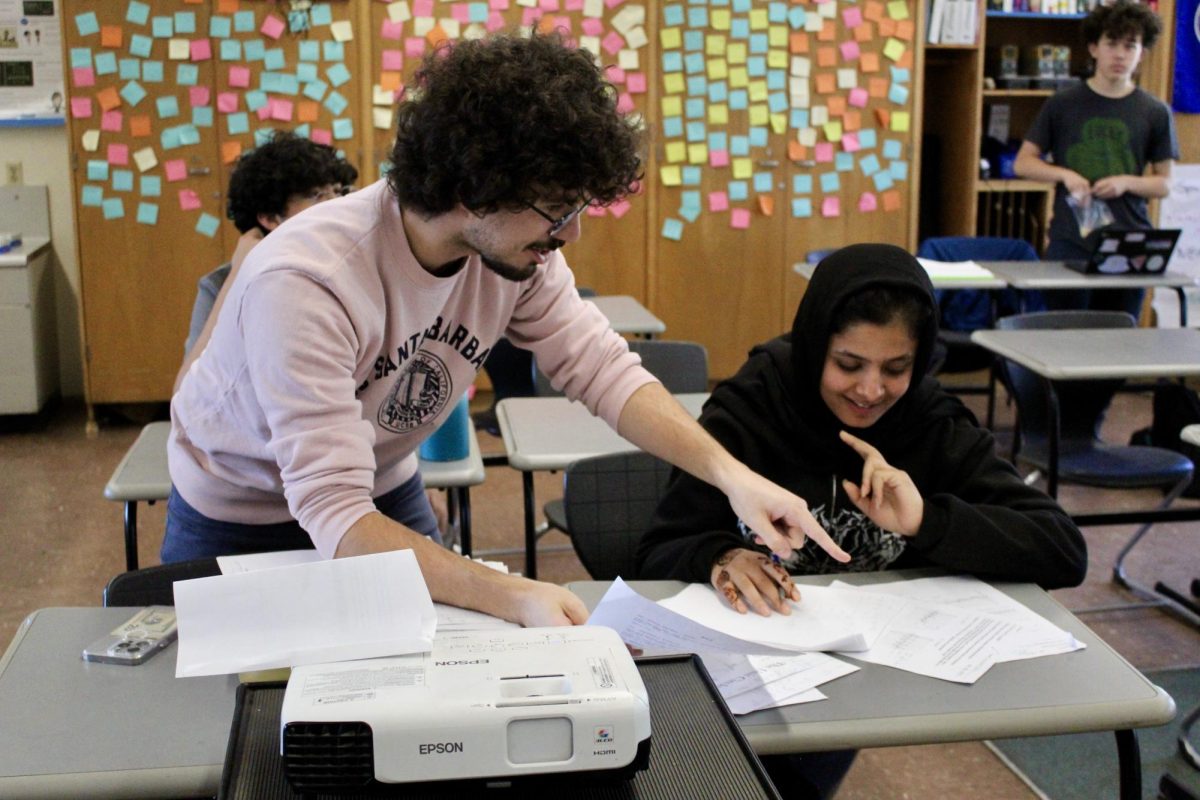
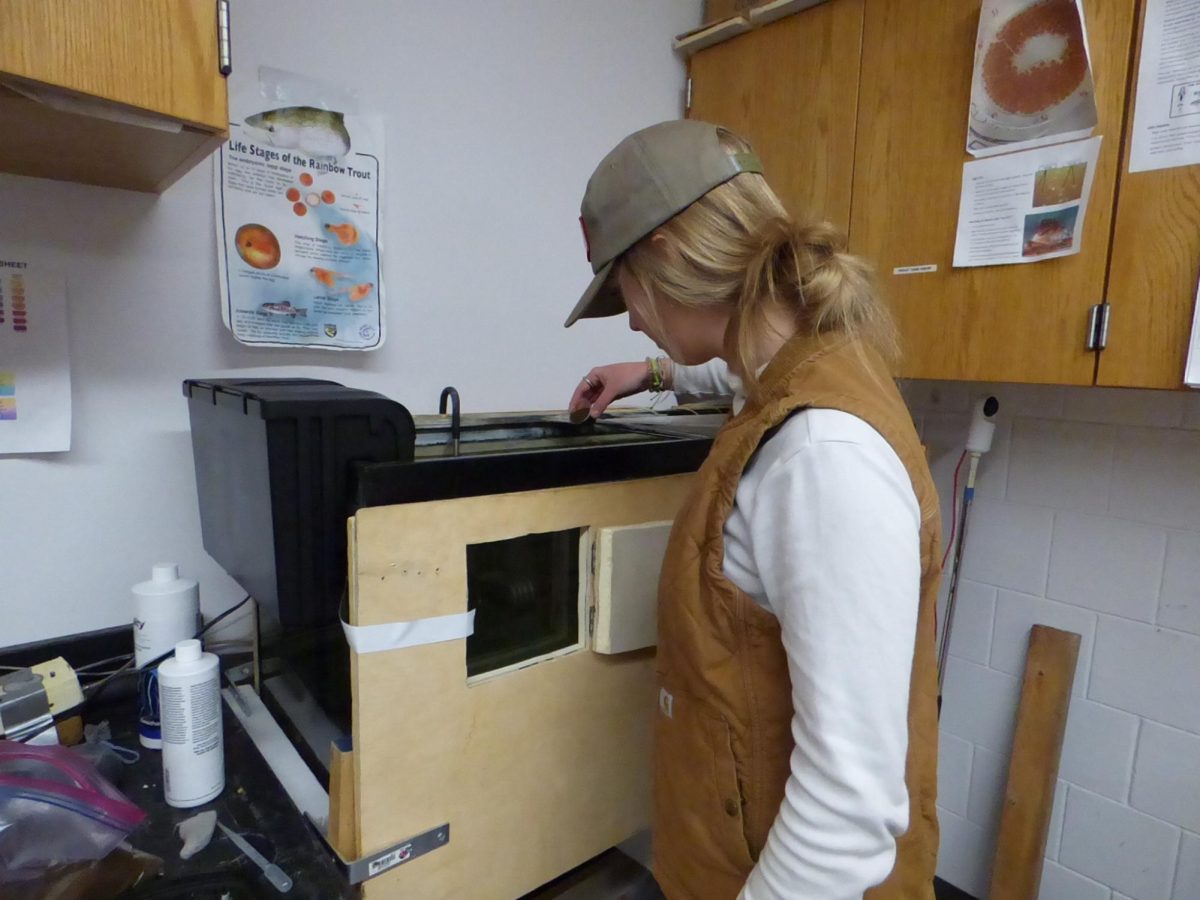





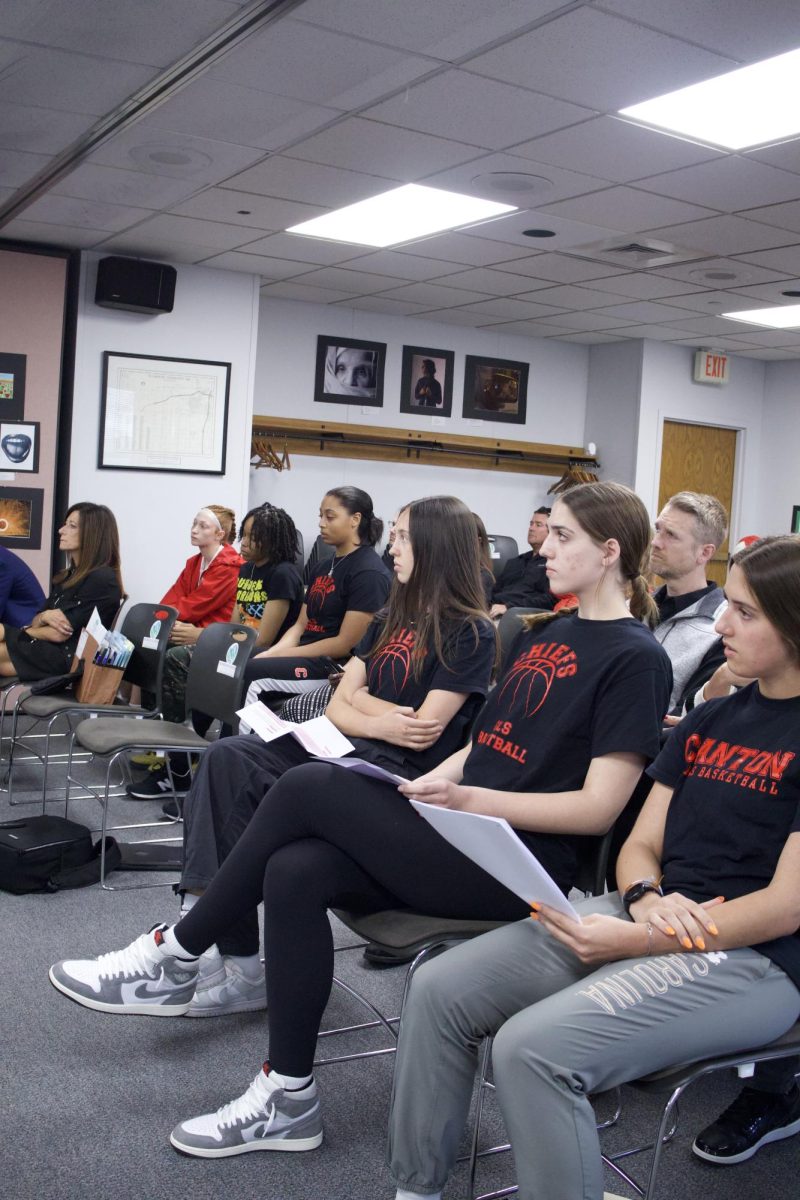





















![IN THE SPOTLIGHT: Junior Zalie Mann performs “I Love to Cry at Weddings,” an ensemble piece from the fall musical Sweet Charity, to prospective students during the Fine Arts Showcase on Wednesday, Nov. 8. The showcase is a compilation of performances and demonstrations from each fine arts strand offered at McCallum. This show is put on so that prospective students can see if they are interested in joining an academy or major.
Sweet Charity originally ran the weekends of Sept. 28 and Oct. 8, but made a comeback for the Fine Arts Showcase.
“[Being at the front in the spotlight] is my favorite part of the whole dance, so I was super happy to be on stage performing and smiling at the audience,” Mann said.
Mann performed in both the musical theatre performance and dance excerpt “Ethereal,” a contemporary piece choreographed by the new dance director Terrance Carson, in the showcase. With also being a dance ambassador, Mann got to talk about what MAC dance is, her experience and answer any questions the aspiring arts majors and their parents may have.
Caption by Maya Tackett.](https://bestofsno.com/wp-content/uploads/2024/02/53321803427_47cd17fe70_o-1-1200x800.jpg)
![SPREADING THE JOY: Sophomore Chim Becker poses with sophomores Cozbi Sims and Lou Davidson while manning a table at the Hispanic Heritage treat day during lunch of Sept 28. Becker is a part of the students of color alliance, who put together the activity to raise money for their club.
“It [the stand] was really fun because McCallum has a lot of latino kids,” Becker said. “And I think it was nice that I could share the stuff that I usually just have at home with people who have never tried it before.”
Becker recognizes the importance of celebrating Hispanic heritage at Mac.
“I think its important to celebrate,” Becker said. “Because our culture is awesome and super cool, and everybody should be able to learn about other cultures of the world.”
Caption by JoJo Barnard.](https://bestofsno.com/wp-content/uploads/2024/01/53221601352_4127a81c41_o-1200x675.jpg)




